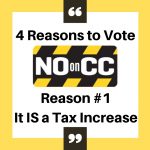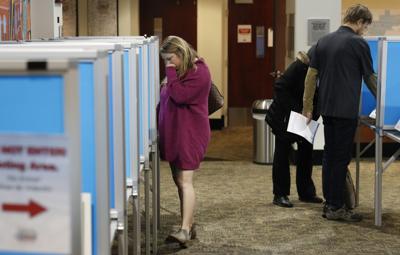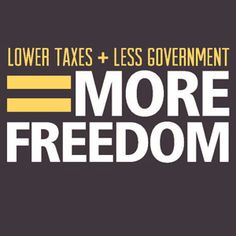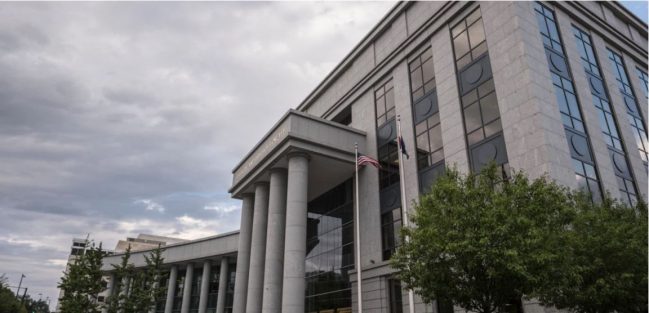DON’T GIVE LEGISLATURE A BLANK CHECK
In your upcoming mail ballot you will be asked to give the state of Colorado a blank check. Don’t be tricked into believing the initial language “without raising taxes…”
Proposition CC is a tax increase forever. Colorado taxpayers will no longer receive (forever) any of their tax rebates (refunds) of their hard earned money if Proposition CC passes.
Colorado Legislature has tricked us in the past by saying requested tax increases would fund roads, bridges, education, teacher pay, and on and on, but when our taxpayer money was spent, the Legislature decided to divert it elsewhere due to lobby and special interest groups pressure. The Legislature has consistently broken promises to Colorado voters. Recently, Colorado voters rejected 13 ballot measures at the state level by a wide margin. Because Colorado voters defeated the Colorado Legislature’s request for more funds, the Legislature now proposes to “trick” Colorado voters again.
This Proposition will “gut” the Taxpayer Bill of Rights (also known as TABOR). The Taxpayer Bill of Rights requires voter approval for any increase in taxes or debt. This is our Taxpayer Bill of Rights, not the Legislature’s, do not vote to give it away forever.
The Taxpayer Bill of Rights has been the only way voters have kept Colorado from spending taxpayer funds to the maximum, as done in California.
Proposition CC will forever remove Colorado seniors and veterans property tax exemptions. This will put seniors and veterans at risk, and place more pressure on local budgets.
Colorado communities have individually voted property tax increases to fund local schools and other services such as fire departments (we can locally determine if funds are being spent as represented), and if Proposition CC passes, those seniors and veterans on fixed incomes will have a difficulty paying local property tax bills.
Colorado has a top ranked economy. The Taxpayer Bill of Rights has contributed to Colorado’s success. Colorado has one of the lowest tax rates in the country providing a positive location for business investment and jobs.
If our Taxpayer Bill of Rights is repealed, over $1.7 billion collected over the next 3 years will not be refunded to Colorado taxpayers.
The Legislature already has a $32.5 billion budget… enough is enough! This budget automatically increases with population and inflation. The Legislature has enough of our money.
The Legislature must be held to account and budget just as we do with our personal budgets.
Mary Ann Smith
Pagosa Springs
http://gazette.com/opinion/letters-downtown-springs-gets-special-attention-don-t-give-legislature/article_fd7b996e-eb70-11e9-8a16-23c66974a6f9.html
 Reason No. 1: It does raise taxes.
Reason No. 1: It does raise taxes.


